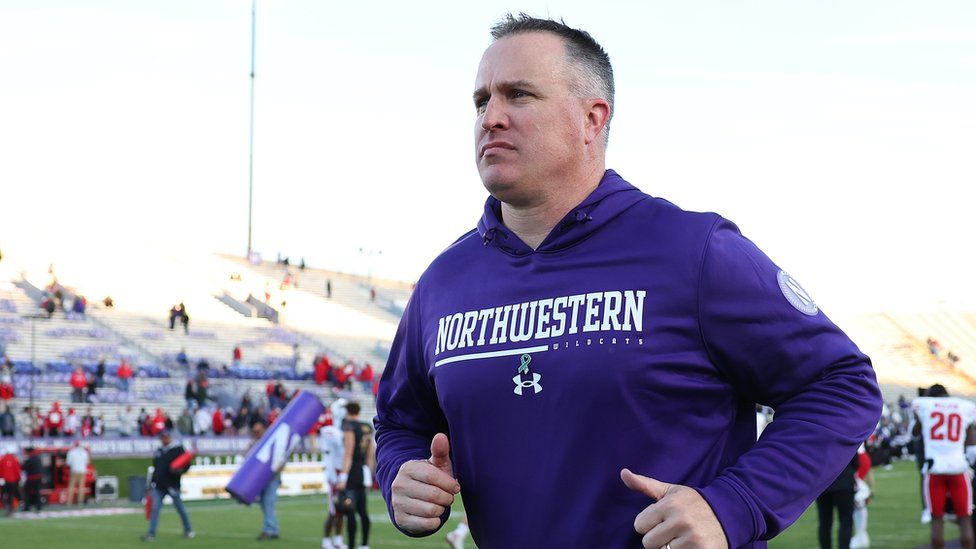ARTICLE AD BOX
 Image source, Getty Images
Image source, Getty Images
Northwestern coach Pat Fitzgerald denies any knowledge of hazing
By Brandon Drenon
BBC News
A major American university fired its head football coach on Monday following an investigation into allegations of widespread hazing.
Northwestern coach Pat Fitzgerald was accused of witnessing and taking part in a sexualised punishment ritual.
Mr Fitzgerald denied knowledge of any form of hazing.
He was dismissed after an independent investigation - despite "hundreds" of supportive messages, Northwestern President Michael Schill said.
Mr Schill said "the head coach is ultimately responsible" for the team's culture and that Mr Fitzgerald had "the opportunity to learn what was happening" within the team.
Mr Fitzgerald released a statement to ESPN saying he had "no knowledge whatsoever of any form of hazing" and that he would "take the necessary steps to protect my rights in accordance with the law".
The 48-year-old coach, who was initially suspended on Friday for two weeks without pay, was accused by an anonymous former player of presiding over and taking part in a hazing ritual dubbed "running".
In a report published by The Daily Northwestern newspaper, the former player said "running" involved freshman players being punished by older teammates for mistakes.
"It's done under this smoke and mirror of, 'Oh, this is team bonding,' but no, this is sexual abuse," the former player alleged.
Multiple other former athletes have come out since the initial report, corroborating that hazing did occur, including allegations of racism.
An independent investigation found "participation in or knowledge of the hazing activities was widespread across football players," USA Today reported.
Mr Fitzgerald said that investigation's findings "reaffirm what I have always maintained - that I had no knowledge whatsoever of any form of hazing within the Northwestern Football Program".
In a statement on Monday, Mr Schill said that - over the weekend - at least a dozen current and former Wildcats players confirmed the existence of "systemic" hazing that had been going on for years.
"Over the last two days, I have received hundreds and hundreds of emails describing how [Mr Fitzgerald] has transformed the lives of current and former student athletes," Mr Schill said.
"However, as much as [Mr] Fitzgerald has meant to our institution and our student-athletes, we have an obligation - in fact a responsibility - to live by our values, even when it means making difficult and painful decisions such as this one. We must move forward."

 1 year ago
94
1 year ago
94








 English (US) ·
English (US) ·